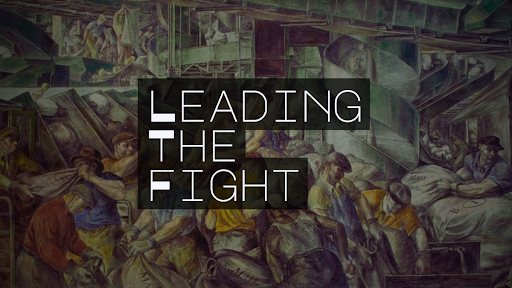BEACON MEDIA GUEST FEATURE
Down Home N.C. candidate recruiter Isra Allison, originally from Philadelphia, Pa., writes about her journey to help the working class ascend to the halls of power.
By Isra Allison
Beacon Media
Sometimes life is preparing us to become something, and we don’t even know it. I spent my earliest years in New Jersey. When I was about six years old, I moved to Jamaica to live with my grandparents. If that wasn’t culture shock enough, I moved back to the U.S. when I was a teenager to live with my mother and stepfather in a rough section of Philadelphia called Kensington.
My whole life, I’ve been going back and forth between cultures.
There was one constant that grounded me. Storytelling. I learned that regular working people – nurses, teachers, stay-at-home parents – have stories to tell, and if we actually listen to them, they can create solutions to some of our toughest problems.
Kensington was a diverse immigrant community with a history dating back to the very first immigrants coming to America. There were a lot of Irish and Polish folks, Albanians, and a huge Asian population – people from Korea, Vietnam and China. There were also a lot of Cubans, Dominicans, and Mexicans. The feeling and the food, the smells, the celebrations for all the different holidays – I grew up around all of that.
But that part of Philadelphia was also impoverished. People called it the Badlands. My mother was a teacher, and my stepfather found whatever work he could to help keep food on the table, whether that was working as a meat cutter at Save-A-Lot or grooming horses at the racetrack.
There was a lot of drug trafficking in the neighborhood, and it was my responsibility to keep my siblings busy so they weren’t out on the street when people started shooting.
People in Kensington looked out for each other, but we felt that local politicians and the government had pretty much given up on us; my neighborhood had given up on the government. We lost a lot of neighbors to disease, suicide, overdoses, or people getting shot. When I got my chance, I left.
I moved to Charlotte and began working as a corporate trainer.
But I wanted to figure out why communities like mine continued to suffer and do something about it. In 2015, in the run-up to the presidential election, I started volunteering, knocking doors for the Bernie Sanders campaign. Pretty soon, I had knocked on doors all over the country, asking people about the problems they were facing.
Eventually, this work took me back to my old neighborhood in Kensington, 20 years after I left for Charlotte.
I was so angry at what I saw that I wept.
The Badlands were even worse off than when I was young. The other volunteers with me on that trip said the place looked like a zombie apocalypse.
When I talked to people in my old neighborhood, I really wanted them to reflect. They told me about all of their problems with health care, education, and housing. And I would ask: Who do you think is to blame?
It all boiled down to, in their words: it’s our local government, it’s our state government, it’s our federal government.
That’s when I asked, ‘So what are we going to do about it?’
There was total agreement that working people need to be in these seats of power. People who have these life experiences can create policy that directly improves the lives of their community.
When Bernie lost the election, I helped kickstart Brand New Congress, an organization set up to find ordinary, extraordinary people to run for office. We recruited powerhouses like Alexandria Ocasio-Cortez and Cori Bush. We endorsed and supported the elections of Ilhan Omar and Rashida Talib. In 2018, I supported 31 campaigns across the country with training, coaching and setting up campaign infrastructure.
I knew then that this was life-changing work, and what I was called to be doing.
Now I work for Down Home North Carolina. I’m recruiting and coaching regular working people to run for political office, mostly in rural areas.
I see new opportunities in areas that are so different from the one I grew up in, but still suffer from the same basic indignity: they’ve been forgotten.
The people I work with clean houses, fix cars, bartend, wait tables. Knocking doors and living where I’ve lived, I know those are the people we need leading our communities and our government.
If we are successful, we will be able to see the fruits of our labor. When we knock doors, we’ll ask who represents them, and they will say it’s their neighbor who represents their interests — someone we recruited. I know they then need to follow through. They will see that community voices and representation matters.
North Carolina is now home. If I ever go back to the Badlands, I’ll them the same thing I’m saying all over the Tar Heel state: it’s up to all of us to build a democracy that works for all of us.
That starts with working-class people leading the fight.
Isra Allison, who lives in Charlotte, N.C., is a campaign strategist and trainer whose work promotes a new generation of leaders for a powerful grassroots democracy.
This column is produced in partnership with Down Home NC. Learn more about their work at www.downhomenc.org.
This column is syndicated by Beacon Media and is available to republish for free on all platforms under Beacon Media’s guidelines.





